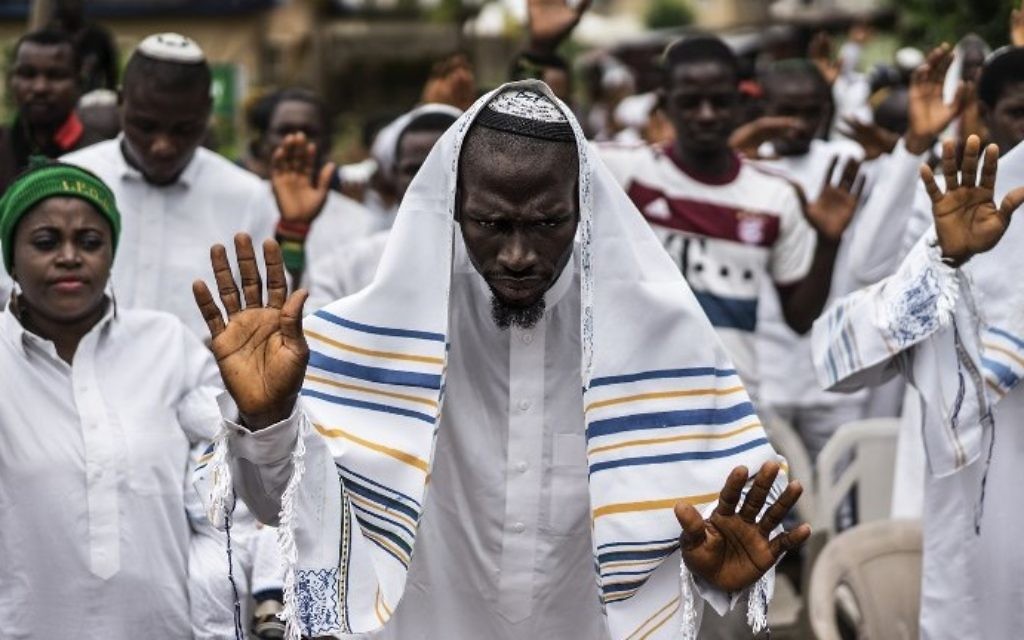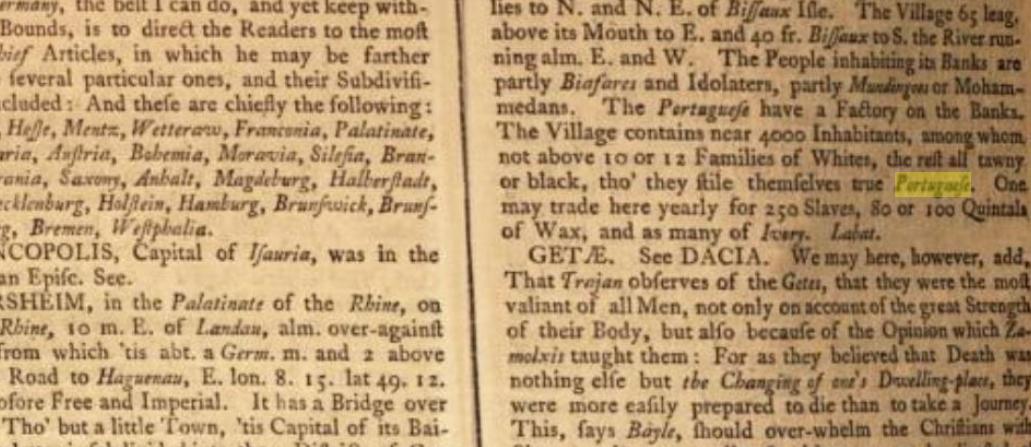Source: Google Books
Author: James Rennell Mungo Park
Publication Date: 1799 AD
Dates Referenced: 1795 AD, 1796 AD, and 1797 AD
Title: Travels in the Interior Districts of Africa: Performed Under the Direction and Patronage of the African Association, in the Years 1795, 1796, and 1797
Pages: 314 – 316

More Info
“Exclusive of the Koran, and a book or two of commentaries thereon, the schoolmaster possessed a variety of manuscripts, which had partly been purchased from the trading Moors, and partly borrowed from Bushreens in the neighbourhood, and copied with great care. Other MSS. had been produced to me at different places in the course of my journey; and on recounting those I had before seen, and those which were now shewn to me, and interrogating the schoolmaster on the subject, I discovered that the Negroes are in possession (among others), of an Arabic version of the Pentateuch of Moses, which they call Taureta la Moosa. This is so highly esteemed, that it is often sold for the value of one prime slave. They have likewise a version of the Psalms of David (Zabora Dawidi); and, lastly, the book of Isaiah, which they call Lingeeli la Isa, and it is in very high esteem. I suspect, indeed, that in all these copies, there are interpolations of some of the peculiar tenets of Mahomet, for I could distinguish in many passages the name of the Prophet. It is possible, however, that this circumstance might otherwise have been accounted for, if my knowledge of the Arabic had been more extensive. By means of those books, many of the converted Negroes have acquired an acquaintance with some of the remarkable events recorded in the Old Testament. The account of our first parents; the death of Abel; the deluge; the lives of Abraham, Isaac, and Jacob; the story of Joseph and his brethren; the history of Moses, David, Solomon, &c. All these have been related to me in the Mandingo language, with tolerable exactness, by different people; and my surprise was not greater on hearing these accounts from the lips of the Negroes, than theirs, on finding that I was already acquainted with them; for although the Negroes in general have a very great idea of the wealth and power of the Europeans, I am afraid that the Mahomedan converts among them, think but very lightly of our superior attainments in religious knowledge. The white traders in the maritime districts, take no pains to counteract this unhappy prejudice; always performing their own devotions in secret, and seldom condescending to converse with the Negroes in a friendly and instructive manner. To me, therefore, it was not so much the subject of wonder, as matter of regret, to observe, that while the superstition of Mahomet has, in this manner, scattered a few faint beams of learning among these poor people, the precious light of Christianity is altogether excluded. I could not but lament, that although the Coast of Africa has now been known and frequented by the Europeans for more than two hundred years, yet the Negroes still remain entire strangers to the doctrines of our holy religion. We are anxious to draw from obscurity the opinions and records of antiquity, the beauties of Arabian and Asiatic literature, &c.; but while our libraries are thus stored with the learning of various countries, we distribute with a parsimonious hand, the blessings of religious truth, to the benighted nations of the earth. The natives of Asia derive but little advantage in this respect from an intercourse with us; and even the poor Africans, whom we affect to consider as barbarians, look upon us, I fear, as little better than a race of formidable but ignorant heathens. When I produced Richardson’s Arabic grammar to some Slatees on the Gambia, they were astonished to think that any European should understand, and write, the sacred language of their religion. At first, they suspected that it might have been written by some of the slaves carried from the Coast; but, on a closer examination, they were satisfied that no Bushreen could write such beautiful Arabic; and one of them offered to give me an ass, and sixteen bars of goods, if I would part with the book. Perhaps, a short and easy introduction to Christianity, such as is found in some of the catechisms for children, elegantly printed in Arabic, and distributed on different parts of the Coast, might have a wonderful effect. The expence would be but trifling; curiosity would induce many to read it; and the evident superiority which it would possess over their present manuscripts, both in point of elegance and cheapness, might at last obtain it a place among the school books of Africa.”
Arabic Literacy In Central Africa
Mungo Park’s focus on central Africa confirms that the inhabitants were already familiar with the stories of Judaism and the stories in the Pentateuch, even though they were practitioners of Islam. This is also confirmation that the inhabitants of central Africa spoke and wrote in Arabic based on the following statement:
“When I produced Richardson’s Arabic grammar to some Slatees on the Gambia, they were astonished to think that any European should understand, and write, the sacred language of their religion. At first, they suspected that it might have been written by some of the slaves carried from the Coast; but, on a closer examination, they were satisfied that no Bushreen could write such beautiful Arabic…”
The first assumption of the Africans upon seeing Richardson’s Arabic grammar, was that it was written by slaves from the Coast and not Europeans. This confirms a portion of Santamaria’s claim that black slaves came to America speaking ancient Hebrew, Arabic, and local patois.
“In Southern Nigeria the natives call Black Jews the strange people on the Emo Yo Quaim. They are called the B’nai Ephraim the sons of Ephraim. They claim that their ancestors came from Morocco and this is supported by Godbey who noted that their language is a mixture of Maghrebian Arab, ancient Hebrew and local patois: for example abu meaning father became y aba, umm for mother is close to the Hebrew word. These Emo Yo Quaim Jews live in the ondo district and have a copy of the Torah.”1
While Mungo Park traveled through Central Africa, Santamaria’s focus was on Nigeria on the West African coast. Both accounts record the inhabitants in possession of Hebrew scriptures and both inhabitants spoke Arabic.
Sources
- Santamaria, Ulysses. 1987. Blacks Jews : The Religious Challenge or Politics Versus Religion. p 235. https://www.jstor.org/stable/23997577 ↩︎





